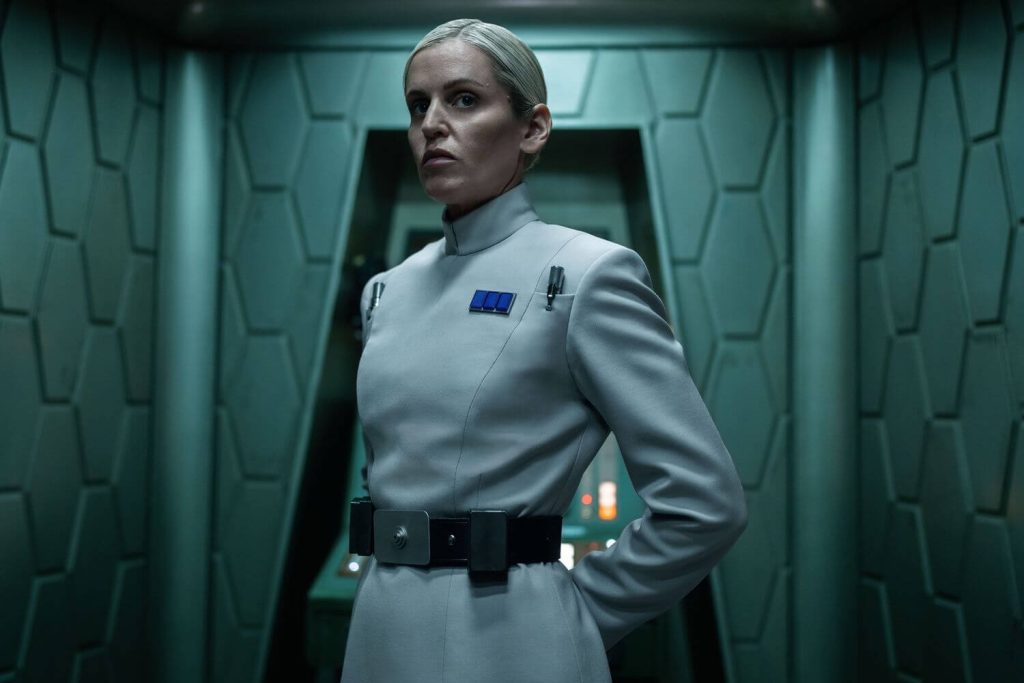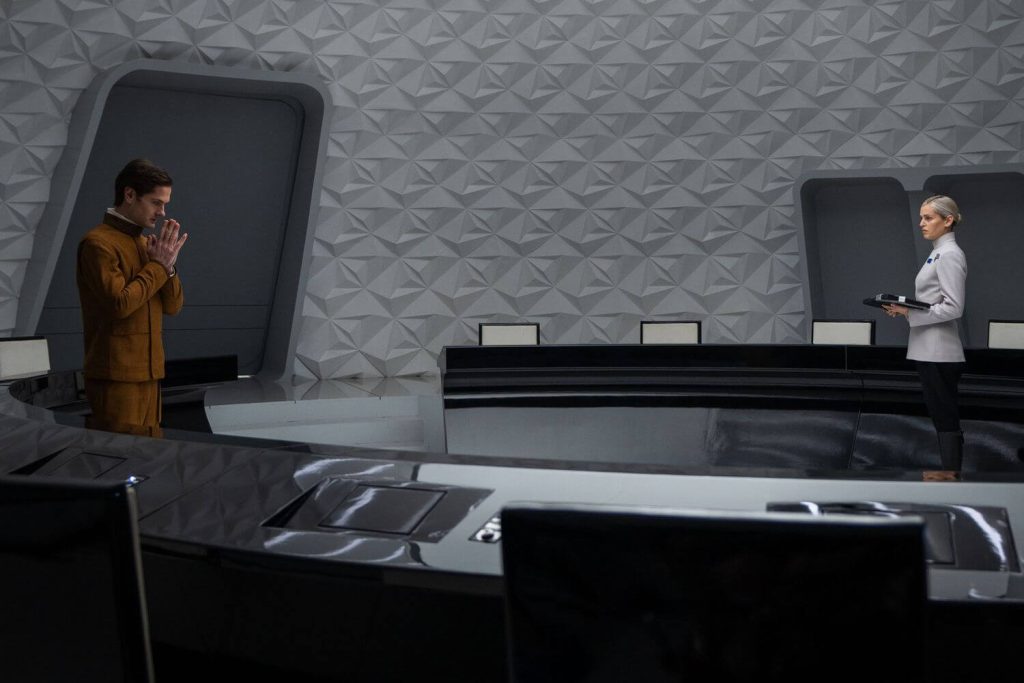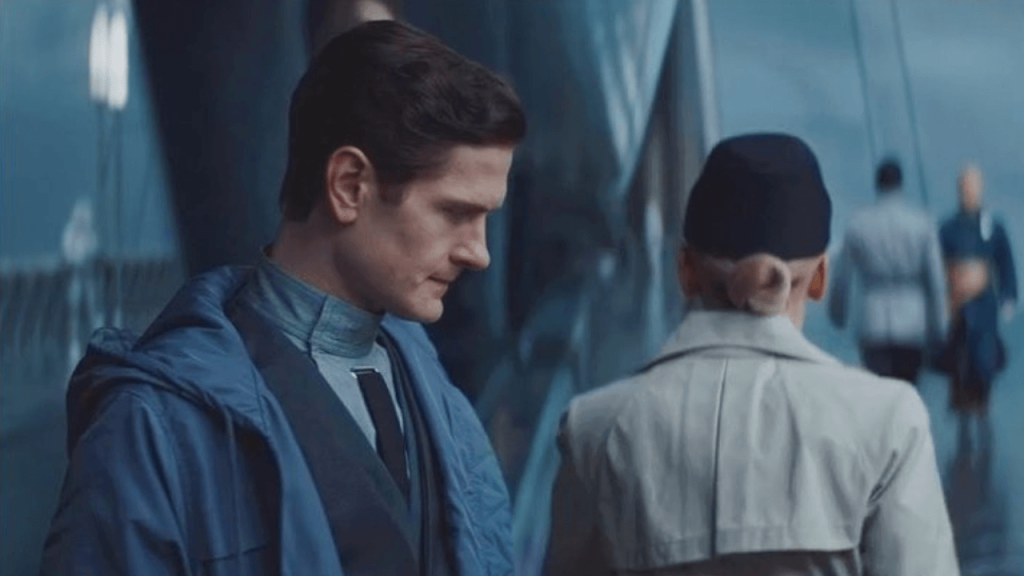World News
Star Wars With a Side of Satire: How Tony Gilroy Learned to Love Andor’s Dinner Scene
A Scene Unlike Any Other in the Star Wars Universe
In the sprawling, serious galaxy of Star Wars, few scenes have surprised—and delighted—audiences quite like the now-iconic dinner party sequence in Andor. Set during the show’s first season, the scene plays out not in a battlefield, starfighter, or shadowy rebel base, but in a luxurious Coruscant apartment. The setting? A posh political dinner hosted by Mon Mothma, the dignified senator secretly working to fund the Rebellion. The guests? Power-hungry elites and oblivious aristocrats. The tone? Unexpectedly hilarious.
This jarring shift in style and setting was precisely what made the scene stand out. Yet, in a recent reveal, showrunner Tony Gilroy admitted he originally “hated” a key aspect of the scene—and almost left it on the cutting room floor. Known for his brooding, high-stakes storytelling (he also wrote Michael Clayton and The Bourne Identity), Gilroy was initially uncomfortable blending such overt comedy into a show known for its political gravity and emotional depth.

Political Theater Meets Dinner Theater
What makes the dinner scene so memorable is how it distills the absurdity of Imperial-era politics into a single evening of forced smiles, coded conversations, and veiled threats. Mon Mothma, played with elegance and tension by Genevieve O’Reilly, must navigate treacherous waters: appearing loyal to the Empire while secretly opposing it. The dinner itself is a metaphor—a table full of enemies pretending to be allies, smiles masking power plays.
Tony Gilroy originally bristled at the scene’s overt humor. According to him, the scripted dialogue—laden with satire, pomp, and even marital bickering—felt too much like a farce in contrast to the show’s gritty realism. He worried it would break the tone, undermine the tension, and disrupt the careful world-building. But the creative team, especially the actors, felt differently. They saw the comedy as layered, organic, and, most importantly, truthful. Politics, after all, is often theater—and dinner parties are rarely what they seem.
How the Scene Found Its Voice (and Kept Its Forks)
Thankfully, cooler heads prevailed, and Gilroy agreed to keep the scene, albeit with some hesitation. What changed his mind? A mix of performance and perspective. Watching the actors rehearse and then shoot the scene, Gilroy began to see its deeper resonance. The humor didn’t detract from the show’s tone—it enhanced it. It revealed just how disconnected the ruling class was from the suffering under their governance, highlighting the cruelty of their indifference through biting satire.
Genevieve O’Reilly, in particular, was instrumental in grounding the scene’s comedy with a tense undercurrent of fear. Every toast, smirk, and sarcastic remark layered with dread and urgency. By the time the final edit was locked, the dinner scene had evolved from an uneasy inclusion to one of the most-discussed sequences of the season—praised for its boldness, complexity, and, yes, its unexpected hilarity.

A Study in Contrast: Why Comedy Works in Dark Drama
The beauty of Andor lies in its refusal to play by traditional Star Wars rules. There are no Jedi in shining robes, no grand battles with triumphant music. Instead, the show zeroes in on the personal and political, exploring themes of oppression, surveillance, and sacrifice. Against that backdrop, the dinner scene serves as a satirical counterpoint to the grimness elsewhere—an oasis of dark comedy amid chaos.
Tony Gilroy, in hindsight, now sees the scene’s success as a lesson in trust and tonal diversity. The humor, rather than diluting the show’s message, added richness and humanity. In a world so tightly controlled by the Empire, laughter—especially when it’s laced with fear—is not just funny; it’s defiant. The scene reminds us that resistance can begin in the smallest of ways—even with a subtle glare across a lavish table.
The Legacy of a Scene That Almost Got Cut
The dinner scene in Andor has since been cited as one of the show’s most brilliant character studies and a perfect example of Star Wars storytelling evolution. It demonstrated that even in a galaxy far, far away, politics, power, and human folly often manifest not just in war rooms, but over wine glasses and whispered insults. For Tony Gilroy, it marked a personal turning point—proof that sometimes, the ideas you resist most fiercely are the ones audiences will cherish most.
As Andor continues into its second season, scenes like this offer a blueprint for how to balance tone without sacrificing intensity. They invite writers, directors, and fans alike to embrace risk, surprise, and—yes—comedy, even in the darkest corners of the galaxy.
From dragontrendtees


